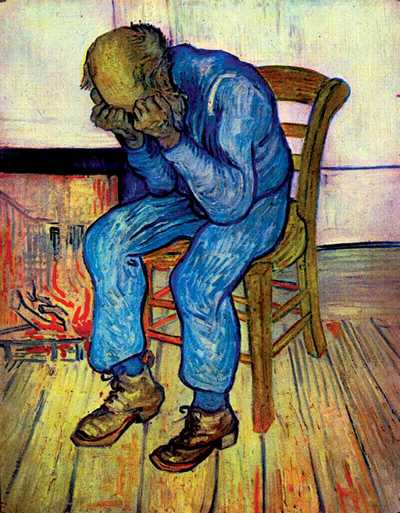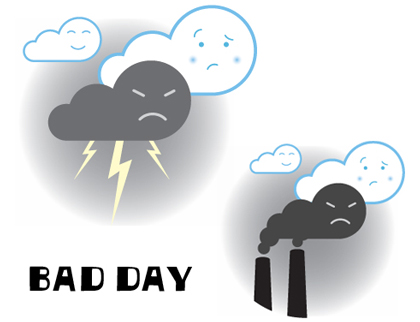I don’t know about all you guys, but I think when I say this concerns the general public’s opinion it doesn’t seem to be a far-fetched statement: a poker player’s mood is determined by the present-past experiences, happenings and bad beats. When you are winning and having a good run, it seems you are the Ace and have an aura that owns this planet called Earth. However, on the flip of the coin, if you’re showing a bad day and a losing streak because of bad luck or bad decisions, this can make you feel like avoiding everyone and everything and hating the world. Even the ones living around you can grab note to this change. To put it in a nutshell, you’re feeling a bit down.
I had some time to reflect on this issue the other day and I started wondering if this could be overcome and controlled. Will this just pass with time; will it only take some months, or maybe even years? Could it happen that I will be able to concentrate on long-term results only and forget to focus just on the day-by-day outcomes? Will I be able to think in ’Sklansky-dollars’ and not pay attention to all misfortunes of buy-ins lost? Do I have the ability and self-control to make myself stand up after the fifteenth losing session and call it a day as if nothing happened? I think all of these are good questions and the truth being I have no idea on the answers, the only thing I know for sure is that I will never be able to completely close the door on past results, but I can still control the outcome of future ones.
Upon mulling over this topic, I happened to have two other questions flood my mind. The first question being: Does this curve-like relationship between my performance and my nerves mean that I’m a gambler and an addict? How much more stabile are the poker professionals? I don’t know why, but I have always thought that the big names seen on TV (like Sammy Farha or Barry Greenstein) or the online poker celebrities (like durrrr or Ziigmund) don’t suffer from this phenomenon. I was a tiny bit glad when it turned out I had been wrong…
I came to realisation about this when I stumbled upon one of Doyle Brunson’s blog entry from two years ago:
’My phone rang and a friend of mine called and said Sammy Farha, Gus Hanson, David Benyamine, and some amateur had been playing in Bobby’s Room for 36 hours. I made a mad dash for my car, broke every traffic law getting to the Bellagio, and proceeded to play ten hours and lose over $400,000. That wiped out my eight game winning streak and put me in a bad, bad mood. The games were 2-7 Triple Draw, Omaha Hi-Lo, and Pot Limit Omaha, and I was tortured all night long. Finally, at 12:30 a.m. I just picked my chips up and spent a restless almost sleepless night in my bed.’
Well, it seems that the professionals are only human too and the living legends are just as disturbed by a losing streak as I am, despite the fact that Doyle Brunson has millions of dollars to back him up. He got in an awful mood and he couldn’t even go to sleep. My illusions have been shattered and this whole issue just seems to be a part of poker and can’t be avoided and it all comes down to how we handle it. That sets us apart from each other as the poker player we become.
How do you feel about this subject? I would like to know!

Vincent Van Gogh: Threshold of Eternity
I hope you will never feel this depressed. The symptoms of depression were first discovered at Van Gogh in 1890, the year he painted the picture above. He committed suicide the same year.

